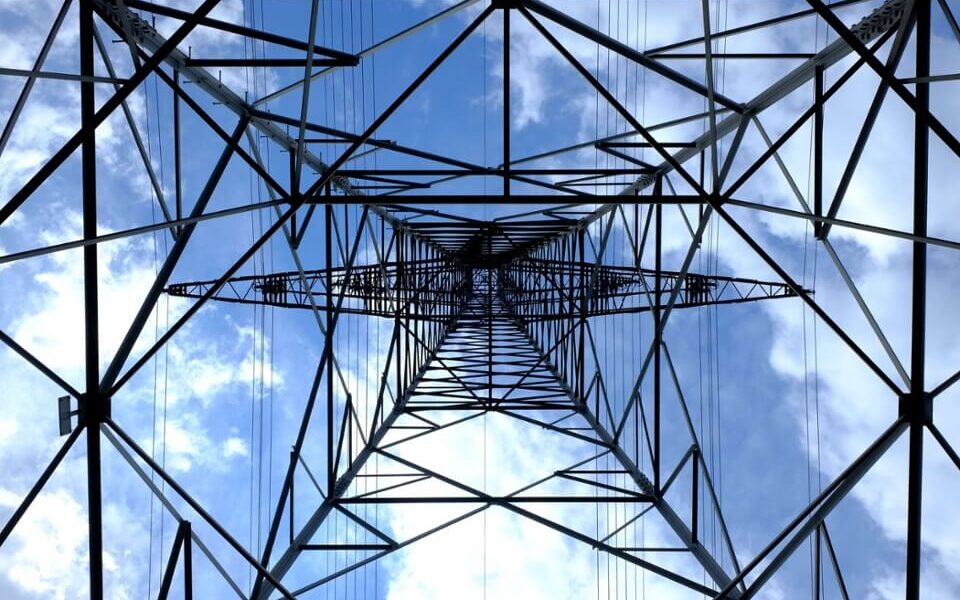
What are non-commodity costs and what do they mean for your billing?
Non-commodity costs can account for as much as 60% of business energy bills - but what are they?
Your energy bill is made up of two elements: Wholesale cost of the electricity and gas you use – the commodity cost – and non-commodity costs, also known as third party charges.
Why are we talking about this?
Wholesale costs have understandably been the focal point of energy conversations and media coverage in recent years.
However, non-commodity costs can account for as much as 60% of business energy bills, and their role in your energy bill continues to grow as the market stabilises.
This percentage is cognisant of an upward trend. In 2015, the average business customer was paying around £43/MWh for their non-commodity costs. By 2020, the average price had surged to £92-93/MWh. From April 2025, this is around £108/MWh for a medium usage customer.
Industry events and the need to replace aging infrastructure as the UK prepares to become a net-zero society mean that non-commodity costs could rise further in the next decade. This, too, will show in your energy costs.
What are non-commodity costs?
Every business that benefits from Great Britain’s electricity network pays for it in some form, from generators to suppliers. Various government taxes and levies are also collected to fund renewable energy programmes and decarbonisation efforts.
This is all reflected in the non-commodity element of your bill.
Examples of non-commodity costs include:
Climate Change Levy (CCL)
The Climate Change Levy is an environmental tax placed on businesses to encourage the reduction of greenhouse gas emissions and improve energy efficiency.
The tax is added to the gas and electricity bills of businesses operating in the industrial, commercial and agricultural sectors, as well as public services, and is paid monthly to their energy provider.
Organisations can claim a CCL discount by successfully applying to the Climate Change Agreement (CCA) scheme. A new CCA scheme is set to open for applications on 1 May 2025.
Update – 6th May 2025
New entrants from existing sectors to the new Climate Change Agreements (CCA) scheme: Opening of applications has been delayed, revised application window to be confirmed. (Previously 1 May 2025 – 31 August 2025.)
Renewables Obligation (RO) scheme
This scheme requires suppliers to present Ofgem with a specified number of Renewables Obligation Certificates (ROCs) per megawatt hour (MWh) of eligible renewable electricity supplied to their customers during each obligation period (1 April – 31 March).
Each year, suppliers must either present ROCs, make a payment into a buy-out fund or a combination of the two.
The buy-out price for the 2025-26 obligation period is £67.06 per ROC. This is the amount suppliers will need to pay for each ROC they do not present towards compliance with their 2025-26 obligation – a £2.33 increase from 2024-2025.
Suppliers pass on the cost of the RO scheme on to the end user at the published rate (buy out price x obligation level).
DUoS (Distribution Use of System) charges
Businesses pay this cost to their supplier, which is then passed to Distribution System Operators (DNOs) towards maintenance of local electricity distribution networks. This charge varies by region, as each DNO sets their own, within Ofgem’s price restrictions.
DUoS charges may show in your bill, or they are built into your contracted rates.
Furthermore, there is a shift in the recovery of DUoS charges. This means some sites will see a drop on their annual cost, while others will see an increase.
How can Inspired help?
The impact of non-commodity charges depends on your portfolio. However, a complete cost analysis alone does not mitigate these charges.
Inspired offers comprehensive support on mitigating the impacts of rising non-commodity rates on your billing.
Our experts continuously review any changes to specific charges and their changing rates. We also offer tools that can bolster your knowledge with an estimated forecast.
We can also support you in the process of applying for exemptions and reductions. The application window for the new CCA scheme is just around the corner. Our CCA service can help you navigate the scheme to ensure you can claim your CCL discount.
If you would like to find out how these non-commodity costs have been applied to your business, a forensic energy cost audit will scrutinise your present and past billing line by line for past errors and ongoing savings.
If you would like to know more about how our experts could support you, please email us at [email protected] or call 01772 689250.










